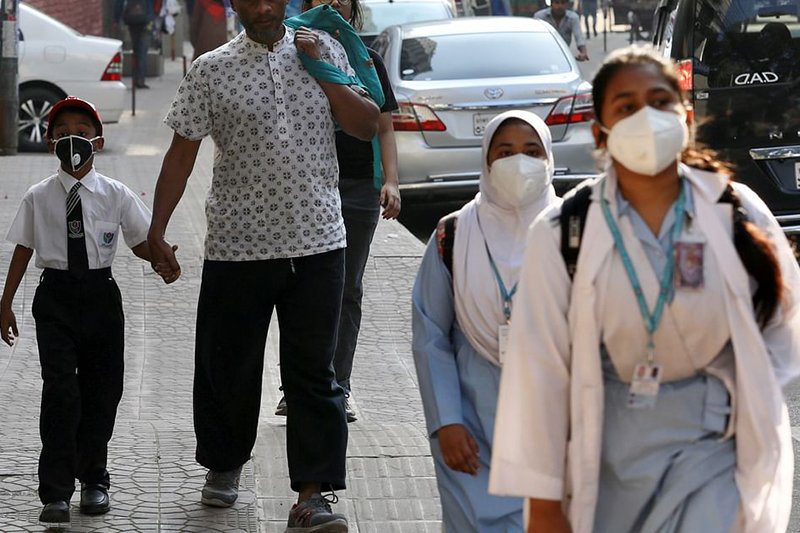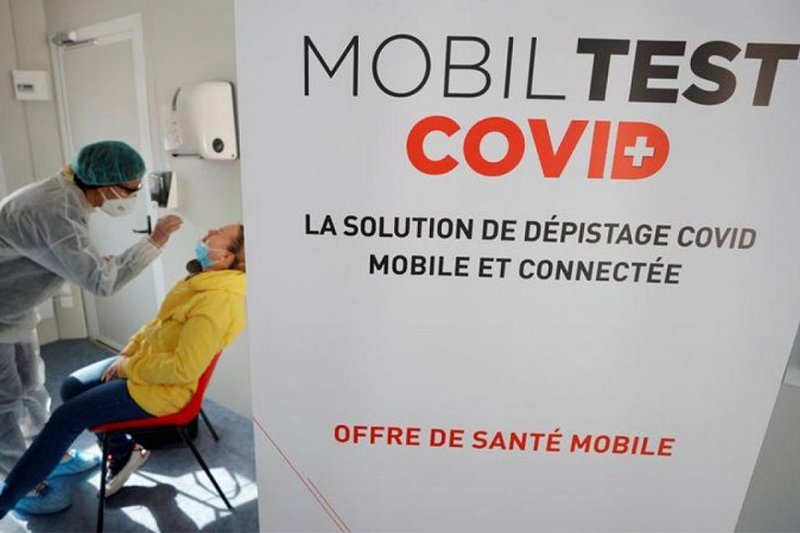The very first primary way to protect from the coronavirus (Covid-19-19) infection is washing hands time and again and wearing mask.
According to a research, at least 65 percent infection from the deadly virus could be reduced through this way. The virus was first detected in the Wuhan province of China in December 2019 which gradually spread across the globe.
Bangladesh first reported the virus on March 8 last year. Though a number of vaccines were innovated by different countries, the people across the world have been putting more emphasis on its prevention.
After the detection of coronavirus cases in Bangladesh, the government has taken various steps to save the life and livelihood of the people.
From the beginning, the government spearheaded massive campaign in mass media to make the people aware about washing hands repeatedly and wearing mask alongside maintaining social distancing.
Not only the government, different social organisations have come forward to create mass awareness about the issue, and the year of 2020 passed in this way.
In the new year, the use of a number of vaccines started in different countries of the world.
In Bangladesh, around 1,82,89,018 people have received the first shot of Covid-19 vaccine while some 78,40,169 got the second jab as of August 29, according to the Directorate General of Health Services (DGHS) data.
It was recently seen that those who received inoculation were infected with the virus. It proved that any effective or perfect vaccines are yet to be developed to this end. Currently, many countries gave approval to some vaccines for their use on an urgent basis. But the importance of washing hands and wearing masks was not reduced.
According to physicians, at least 65 percent corona infection could be checked if the people wash hands and wear mask regularly. Even our honourable prime minister has expressed her firm stance time and again on making mandatory the wearing of mask.
As a result, wearing mask and washing hands have been turned into a social movement. The country’s youthfolk are ahead in the campaign.
A recent survey showed that more than half of the country’s young men and women have enough knowledge in protecting themselves from the Covid-19 and in this case, girls remain ahead in comparison to the boys. The survey was conducted on 675 young men and women of eight divisions aged between 10 and 25.
The information of the survey was revealed through a webinar organised by the Press Institute of Bangladesh (PIB) in association with the UN Food and Agriculture Organisation (FAO).
Against the backdrop of the outbreak of the coronavirus, the FAO carried out the rapid survey on “Nutrition awareness, behaviour and food security of the youths” under its “Meeting the Under Nutrition Challenge Project”. It was funded by the USAID and European Union.
Disclosing the outcome of the survey, Planning and Coordination experts Pragyan Behera and nutritionist Bhami Bora said the income of the 72.7 percent families has dropped significantly due to the Covid-19 pandemic, and the income of those families affected badly is under Taka one lakh.
As many as 65.2 percent young men and women who took part in the survey said they did physical exercise at home or outside to keep their health well. The exercise included jogging, stretching and yoga. Among the participants, 45.7 percent said they slept nine hours daily on an average, while 55 percent slept less than seven hours during the pandemic.
Talking about advancement of girls than boys in wearing mask and washing hands, DGHS Additional Director General Dr Nasima Sultana said naturally the girls are more aware about their health than boys.
“They (girls) are more encouraged in wearing mask and washing hands after watching various awareness raising programmes and advertisements in mass media as they spend more time at home. Besides, they’re more conscious about (physical) exercise,” she observed.

























